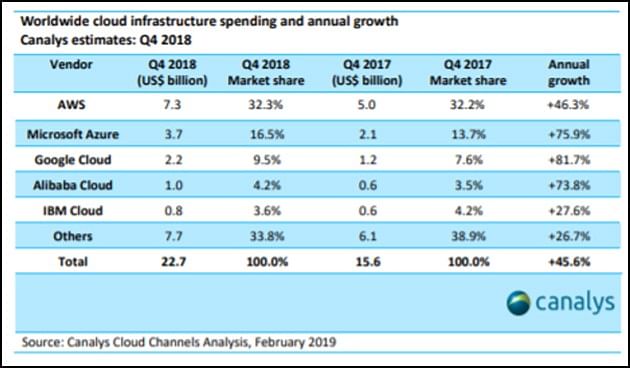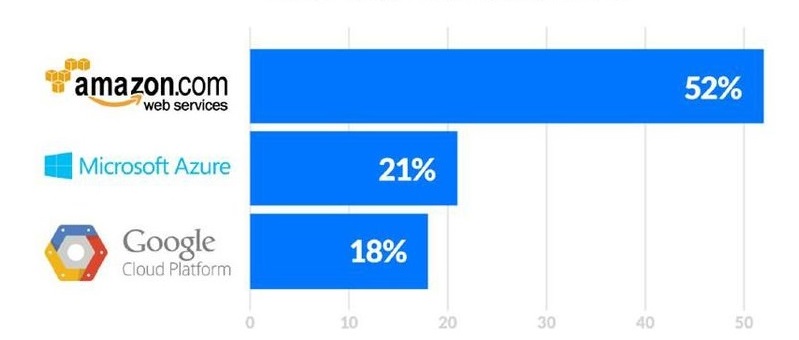What to Expect from an AWS Cloud Computing Career
AWS cloud computing careers are in high demand, with the job market experiencing rapid growth due to the increasing adoption of cloud services. Professionals in this field can expect various roles such as solutions architect, DevOps engineer, and cloud consultant. As a solutions architect, you will be responsible for designing and implementing scalable, secure, and robust systems using AWS services. This role requires a deep understanding of cloud architecture patterns, security best practices, and AWS tools like Amazon S3, EC2, and Lambda.
DevOps engineers in the AWS cloud computing landscape focus on collaboration between software development and IT operations. They aim to shorten the system development life cycle and provide continuous delivery with high software quality. Familiarity with AWS CodePipeline, CodeBuild, and CodeDeploy is essential for this role.
Cloud consultants work closely with clients to understand their business needs and recommend the most suitable AWS solutions. This role demands excellent communication skills, a deep understanding of AWS services, and the ability to translate complex technical concepts into easily understandable language.
With the right combination of AWS certifications, experience, and expertise, professionals can expect competitive salaries and a wealth of opportunities in this growing field.
The Impact of AWS Certifications on Salaries
AWS certifications play a significant role in the cloud computing industry, demonstrating a professional’s expertise and commitment to staying updated with the latest AWS services and best practices. Earning these certifications can positively influence AWS cloud computing salaries by showcasing your proficiency and dedication to potential employers. Specific AWS certifications like the AWS Certified Solutions Architect, AWS Certified DevOps Engineer, and AWS Certified Cloud Practitioner are highly regarded in the field. The Solutions Architect certification is available at two levels: Associate and Professional. The Associate level focuses on designing scalable, cost-efficient, and secure AWS systems, while the Professional level requires advanced skills in designing and deploying dynamically scalable, highly available applications on AWS.
The AWS Certified DevOps Engineer certification is designed for those who implement and manage AWS DevOps processes, including continuous delivery, infrastructure automation, and monitoring. This certification is ideal for professionals seeking to showcase their skills in improving an organization’s development and operations efficiency.
The AWS Certified Cloud Practitioner certification is a foundational-level certification that validates a candidate’s understanding of the AWS cloud, its value proposition, and basic global infrastructure. This certification is an excellent starting point for those new to cloud computing and AWS, providing a solid foundation for further specialization.
By obtaining these certifications, professionals can enhance their credibility, career growth opportunities, and earning potential in the AWS cloud computing landscape.
Average Salaries in the AWS Cloud Computing Landscape
Understanding the average salary ranges for different AWS cloud computing roles can help professionals gauge their earning potential and make informed career decisions. Based on reputable sources, here are some average salary ranges for various AWS cloud computing roles:
Factors Influencing AWS Cloud Computing Salaries
Several factors can impact AWS cloud computing salaries, including years of experience, company size, and location. Understanding these factors can help professionals better position themselves for higher-paying roles and negotiate better salaries. 1. Years of Experience: As with many professions, years of experience significantly influence AWS cloud computing salaries. Professionals with more experience typically command higher salaries due to their deeper understanding of AWS services, best practices, and industry trends. For example, an AWS Certified Solutions Architect with five or more years of experience may earn a higher salary than a junior architect with one to two years of experience.
2. Company Size: Larger companies often have more substantial budgets for AWS cloud computing projects, which can translate into higher salaries for professionals. These companies may also offer additional benefits, such as comprehensive healthcare plans, retirement savings programs, and professional development opportunities. However, smaller companies and startups might provide more equity or growth potential, which can offset lower salaries.
3. Location: AWS cloud computing salaries can vary significantly based on location. For instance, salaries in major tech hubs like San Francisco, New York, or Seattle may be higher than in other regions due to the higher cost of living and increased competition for talent. However, remote work opportunities and the growth of regional tech hubs can help bridge this gap and provide professionals with more flexibility in choosing where to work.
How to Negotiate a Higher AWS Cloud Computing Salary
Negotiating a better salary in AWS cloud computing jobs can be a challenging but rewarding process. By following these tips and strategies, professionals can increase their earning potential and secure better compensation packages: 1. Research Market Rates: Start by researching the market rates for your desired role and location. Utilize reputable sources, such as Payscale, Glassdoor, and LinkedIn Salary Insights, to gather data on average salaries for AWS cloud computing professionals. This information will help you establish a realistic salary range and provide a solid foundation for negotiations.
2. Showcase Skills and Achievements: Highlight your skills, certifications, and accomplishments during the negotiation process. Emphasize your proficiency in AWS services, your experience with complex projects, and any notable achievements that demonstrate your value as a professional.
3. Leverage Competing Job Offers: If you have multiple job offers, use them to your advantage during salary negotiations. Inform potential employers about the other opportunities, emphasizing the benefits of working with their organization, and request a better offer based on this information.
4. Consider Non-Salary Benefits: When negotiating a compensation package, don’t focus solely on salary. Consider other benefits, such as healthcare plans, retirement savings programs, professional development opportunities, and flexible work arrangements. These factors can significantly impact your overall job satisfaction and financial well-being.
5. Practice Active Listening: During salary negotiations, practice active listening to understand the employer’s perspective and concerns. This approach will help you respond effectively and build a stronger rapport with the hiring manager.
6. Be Prepared to Walk Away: If an employer is unwilling to meet your salary expectations, be prepared to walk away. While it can be challenging, this decision may lead to better opportunities and higher earning potential in the long run.
Top Companies Offering Competitive AWS Cloud Computing Salaries
Numerous well-known companies offer competitive salaries for AWS cloud computing professionals. Here are some of the top organizations, along with brief descriptions of their work culture, benefits, and job opportunities: 1. Amazon Web Services (AWS): As the creator of the AWS platform, Amazon offers excellent salary packages and benefits for cloud computing professionals. AWS employees enjoy a dynamic work environment, opportunities for career growth, and a comprehensive benefits package, including healthcare, retirement savings plans, and paid time off.
The Future of AWS Cloud Computing Salaries
As the demand for AWS cloud computing services continues to grow, so too will the salaries of professionals in this field. Market predictions, technological advancements, and increasing demand for cloud services all contribute to a positive outlook for AWS cloud computing salaries. Market Predictions: According to a report by MarketsandMarkets, the global cloud computing market is expected to grow from $371.4 billion in 2020 to $832.1 billion by 2025, at a Compound Annual Growth Rate (CAGR) of 18.0% during the forecast period. This growth will likely result in higher salaries for AWS cloud computing professionals as companies invest more in cloud services and infrastructure.
Technological Advancements: Rapid advancements in cloud technologies, such as serverless computing, artificial intelligence, machine learning, and data analytics, will continue to drive the demand for skilled AWS cloud computing professionals. As these technologies become increasingly integral to business operations, organizations will be willing to pay a premium for experts who can help them leverage these tools effectively.
Increasing Demand for Cloud Services: The ongoing shift toward remote work and digital transformation initiatives will continue to fuel the demand for cloud services. This trend will create more job opportunities for AWS cloud computing professionals, leading to increased competition for talent and higher salaries.
Staying Relevant and Competitive: To stay relevant and competitive in the field, AWS cloud computing professionals should focus on continuous learning and professional development. Earning advanced certifications, staying up-to-date with the latest AWS services and best practices, and developing expertise in emerging technologies can help professionals secure higher-paying roles and remain competitive in the job market.





